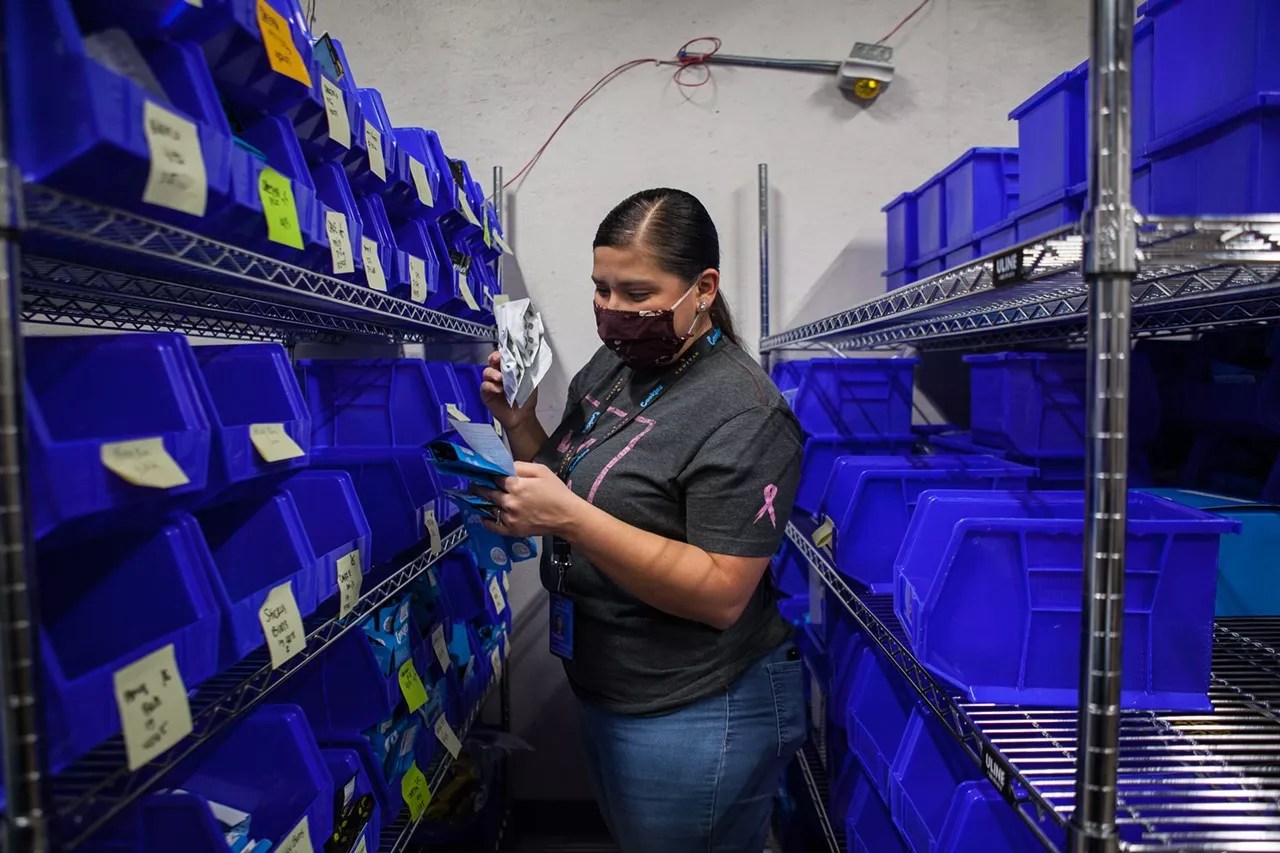
Jacqueline Collins

Audio By Carbonatix
Aurora could be the first city in Colorado to sanction recreational marijuana delivery, after the Aurora City Council voted in favor of an ordinance outlining a licensing structure for local pot deliveries.
The ordinance, approved 8-2 in a first reading on December 7, would make delivery licenses exclusive for social equity applicants for the first three years, or through 2024. As the measure is currently written, any licensed marijuana delivery business could deliver to residential addresses in the city, and only recreational delivery, not medical, would be permitted. Deliveries could take place between 8 a.m. and 10 p.m., and would follow state marijuana purchasing limits of 1 ounce of flower, 8 grams of concentrate, or edibles containing 800 milligrams of THC.
A bill passed in 2019 by the Colorado Legislature created a licensing program within the Colorado Marijuana Enforcement Division for marijuana delivery businesses, but only medical marijuana could be delivered in 2020, with recreational coming online in 2021. During the 2020 legislative session, however, state lawmakers passed a bill creating a social equity applicant definition for marijuana business owners, and marijuana diversity advocates have been calling on local governments, including Aurora’s, to adopt similar language.
To qualify under Aurora’s proposed measure, delivery applicants would have to prove that they or their families were negatively impacted by the War on Drugs, or come from a community designated as a low-economic opportunity zone by the state Office of Economic Development and International Trade. The social equity language was criticized by Councilwoman Marsha Berzins, who worries it could open the city up to lawsuits over licensing discrimination, but the provisions received support from the majority of the council.
“I think the license exclusivity to begin with is great. It provides a lot of opportunities for social equity,” says Sarah Woodson, founder of the Color of Cannabis, a nonprofit dedicated to advancing diversity in the marijuana industry. “You don’t have to be a certain color to qualify. This is about repairing harms done by the drug war.”
Woodson is currently running a ten-week course in Denver for potential social equity marijuana applicants in Colorado, and has included curriculum for delivery operations. She recently brought in executives from Lantern, the e-commerce marijuana branch of Drizly alcohol delivery, to help lead a class on delivery. Instead of hiring drivers like Postmates or Uber Eats, Lantern operates the online retail side, connecting pot consumers with dispensaries and their delivery drivers. Because Colorado state law allows third-party transporters to deliver marijuana, Aurora’s social equity provisions could create several new business owners, according to Lantern co-founder Justin Robinson, who hopes to partner with such potrepreneurs.
“The barriers to entry are slightly lower than [in other parts of the industry] and require much less up-front capital,” Robinson says of delivery. “It’s a nice entry point into the business, because they’ll get a broad perspective of what all of these different operators are like. We’re really excited to have Colorado prioritizing social equity now, and very much hope that more Colorado municipalities will follow what’s happening in Denver and Aurora.”
If the measure passes the council’s second and final reading on December 21, marijuana delivery could begin as early as January of next year. The measure is expected to be approved, but there was some debate during the December 7 meeting among local dispensary groups about whether or not to allow outside stores to deliver inside Aurora city limits. Representatives from the Green Solution, Medicine Man and Starbuds, responsible for almost a third of Aurora’s marijuana storefronts, asked the council that only Aurora pot shops be able to deliver within the city.
“If we’re going to have delivery, let the brick-and-mortar businesses in Aurora that have paid our taxes and paid our dues be the ones to deliver to Aurora residents,” said Starbuds founder Brian Ruden.
Although Boulder, Superior and Longmont all allow medical marijuana delivery, Aurora would be the first local government in Colorado to approve recreational delivery if the council stays on track at the December 21 meeting.
The same day that Aurora’s city council voted on recreational pot delivery, Denver made a small step toward updating its own local marijuana business codes. On December 7, Denver’s Marijuana Licensing Work Group published a set of proposed marijuana delivery, hospitality and social equity business ordinances that would allow indoor smoking at certified businesses, mobile consumption lounges, discounted licensing fees for social equity business owners, and recreational and medical marijuana delivery.
Denver City Council still has to approve the ordinances, but the Denver Department of Excise and Licenses is optimistic that the new rules will be implemented by the second quarter of 2021, and that delivery and social-use businesses will be in operation by the third.